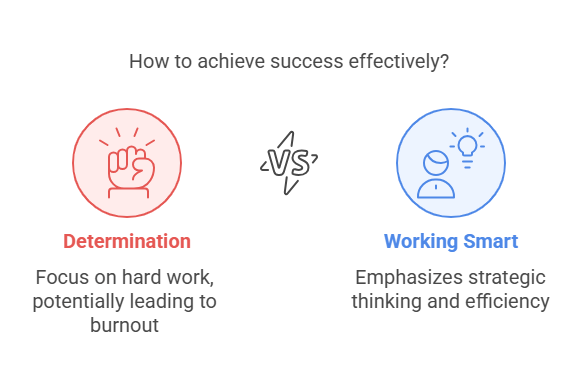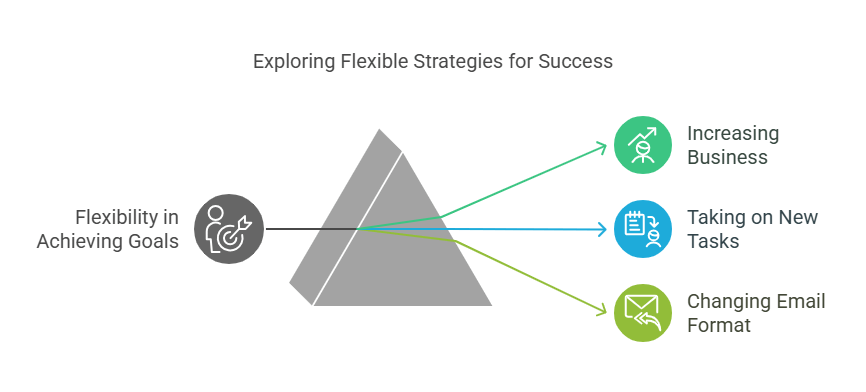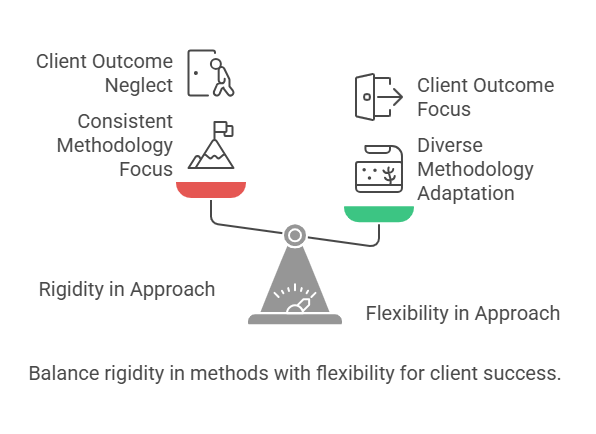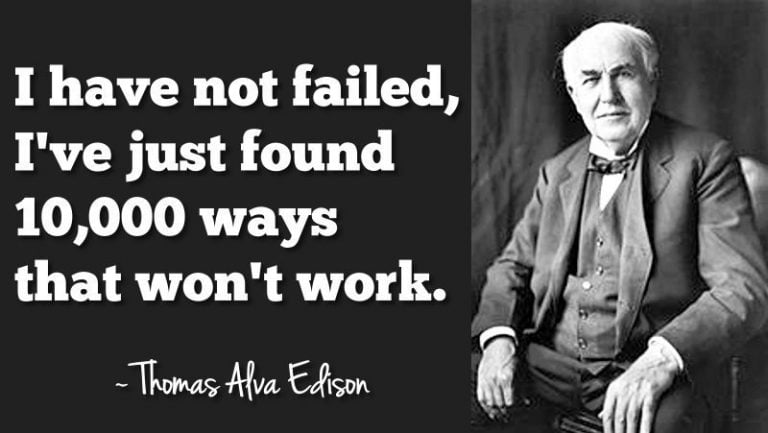In this post we will explore the NLP Presupposition of “The Law of Requisite Variety” and its application in life and during therapies.
This picture quote by Thomas Edison—the inventor of the light bulb—is much more than just a daily motivation shot. We’ve always been taught to see Dr Edison as an example of never-ending determination and perspiration.

Often when we refer to the word ‘determination’, we formulate an image of pursuing our goals with a horse-eyed vision. We often assign working hard as being the strict and only way to success, overlooking the need to work smart.
Thus, we end up falling into a pattern of consistent behaviours that unknowingly keep us away from achieving our complete potential.

Don’t you ever wonder:
- Why you weren’t able to score well in that particular subject in school?
- Why that girl never accepted your proposal?
- Why you couldn’t persuade your boss to give you that promotion?
- Why you haven’t accomplished all of those things in spite of doing all that you had?
The answer to each of the above questions and many more lies in the simple fact that our minds have come to associate determination with a static identity that doesn’t allow us to change our way of doing things but instead lets us settle with whatever result that we get.
In short:
We become rigid with our behaviours & flexible about our outcomes or results.
Thus, the aim is to consciously shift the flexibility that we assign to our outcomes, to our path of achieving it i.e. our behaviours.
Side Note: The same quote can also be used to explain another presupposition “There is no failure, only feedback“.
What is the NLP law of requisite variety?

The law of requisite variety suggests that, the most flexible element in the system generally controls the system.
Rigidity in behaviour may make us lose control over the outcomes we receive. What good will shooting an email, asking for a raise, to your boss every month does if it hasn’t worked for an entire year?
However, instead, if you purposefully choose to try something new — say increase the business you get to your firm each month — to show your boss that you deserve the raise you’ve been asking for, then there is an increased possibility for you to reach your desired outcome.
If this doesn’t do the trick, you may come up with another way to impress your boss — say, take up a task your boss has been asking you to do but you’ve been reluctant in doing or maybe just changing the format, that you were using in the email, requesting for a raise.
In a nutshell, what is being implied is that if you exhibit flexibility in your ways of acquiring your goals, then you increase the probability of achieving success in comparison to you sticking with the same old ways that are clearly not yielding any results.
Therapists Niche

Law of Requisite variety is an NLP Presupposition that therapists can immensely benefit from.
It is important for therapists to avoid being too rigid about techniques they use with their clients. At times therapists likes a particular approach and they kind of get married to it.
The approach they want to follow becomes more important than the outcome that the client wants to achieve.
No matter who the client is and what problem the client has, they are just interested in following that one approach irrespective of whether a client gets the result or not. A good example of this is past life regression. I know of therapists who only use this process for all the clients.
It is important to remember that a particular approach will work for some clients, but no particular approach really works with all clients. The therapist needs to be flexible to choose different approaches and processes depending upon the client and the problem.
Thus the rigidity should be about helping the client achieve the chosen outcome and flexibility about the therapist’s behaviour in terms of what approach and process is followed.
It is also important to help the client develop this behavioural flexibility and in order to do that one needs to increase the choices available in the client’s map and help the client exercise each of the choices with equal ease.
Case Study
A couple came for therapy because they were facing certain problems. During individual sessions both complained that the other one doesn’t love them.

The wife says that my husband doesn’t love me because he doesn’t do anything for me unless being asked. On the other hand, I do everything I can to make his life easier, see so much I love him and he doesn’t even make a cup of tea for me.
The husband says that the wife doesn’t love me because she never says I love you despite of me saying I love you multiple times a day. All I want is for her to say so once in a while, but she just doesn’t.
Both of them were made aware of the different love languages. Both were able to identify their and the partners primary love language.
That of the wife being “Acts of service” and of the husband being “Words of affirmation”.
The wife and husband both were asked whether they would like to feel that their partner loved them and that they would like the partner to know that they are loved as well. Both replied by saying yes.
Once they realised the primary love language of their partner, they were asked, in individual sessions, how they would like to express their love to the partner going forward. Both initially still insisted that they would continue to express the love in the manner they have been.
On being asked whether the current style of expression worked for them, each of them said “No”. Yet each insisted that they would like to continue with the same approach. One of them even said, that this is what I want to do, if my partner can understand good, otherwise well… the partners problem.
It was only when they were asked, what is more important, the manner of expression or the outcome of expression, that they realised the need to change.
At times all that is required in a therapy is to help the client develop behavioural flexibility.
If you too would like to become a more flexible therapist by having a large array of techniques (from cognitive, behavioural, psychoanalytical approaches) available at your disposal, then you must check out the Cognitive Hypnotic Psychotherapy™ Program.
If you are a coach or a trainer, who would like to develop advanced coaching competency and use a variety of techniques with clients based on integration of Hypnosis, NLP, Mindfulness and Metaphors, you must enroll for the Cognitive Hypnotic Coaching™ Program.

